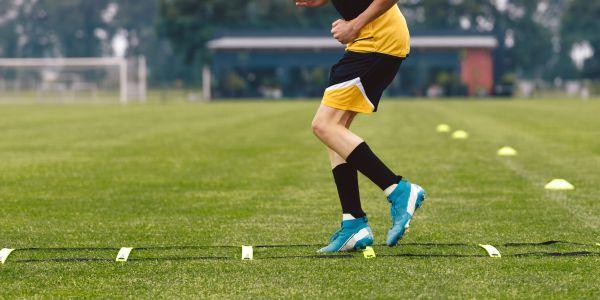Resolving Conflict Helps Your Athletes Grow
Team conflict can affect how young athletes feel about their team, how much they enjoy their sport and how intensely they pursue their goals.
Not only does conflict affect young athletes, but it can also create tension with kids’ teammates, coaches, family and friends outside of sport.
Here’s a scenario: Your young athlete and his coach have a blowout at a competition. The athlete is so angry with the coach that he doesn’t even want to attend practices. Your athlete feels the coach is being unfair and harsh.
When the athlete goes to practice, he tries to avoid unnecessary contact with the coach. He pulls back on his intensity in practice and just doesn’t care much about the season anymore.
The conflict keeps festering to the point the young athlete’s teammates are picking sides. Now, the majority of the team is affected by the situation.
When considering this scenario, would your sports kids really want to give up accomplishing their goals, the team’s objectives and their own emotional well-being?
Nothing good comes from allowing team conflict to go unresolved.
Philadelphia Eagles cornerback Darius Slay and defensive consultant Matt Patricia had a contentious relationship when they were with the Detroit Lions in 2018.
Slay and former head coach Patricia had a significant falling out during the season. The relationship deteriorated so much that Slay requested a trade and was dealt to the Eagles.
After the Eagles hired Patricia, Slay knew they would need to resolve their issues for the team and himself to be their best on the field.
“We have been communicating, and we are just trying to win,” said Slay.
“That’s what it’s all about. We talked about what was going on back then, but I’m always here to get better. He said the same thing, saying he wanted to get better and learn different ways to coach and create a culture because he only knows one culture, so I understand where he came from. We talked man and man. I’m here to win, and he’s here to win, so we are helping each other.”
Resolving conflict as it arises is always the best option rather than allowing it to percolate below the surface and intensify. Resolving conflict will clear kids’ minds and let them be their best for themselves and their teammates.
Here are steps kids should consider when dealing with conflict:
1. Kids should stay focused on their personal and team goals. Don’t let anyone or anything detract from focusing on and working toward their objectives. Remind your young athletes that their goals are more important than the conflict.
Then, help kids commit to attending every practice with a positive attitude, continuing to work hard, and be team players. Help them keep the bigger picture in mind and think about their long-term goals.
2. Young athletes should communicate respectfully. Kids’ first step should be to talk through the conflict with the other person. It is essential that players listen and maintain a calm tone of voice. They should air out differences in private and work toward ensuring teammates don’t feel as though they have to choose sides.
3. Players should channel their energy into action. They can use conflict to motivate themselves to be even better athletes. While they can’t control another person’s thoughts, feelings and actions, they can control how they respond.
4. Kids should rely on a healthy support system. Their mental health should always be their primary concern. They need to use the resources available to work through feelings. Learning and developing conflict-resolution skills can help kids handle future conflicts.
Conflict within a team can be challenging. However, when dealing with conflict, think of what’s at stake: kids’ mental health, goals and the team’s objectives.
Related Articles on Kids’ Mental Game:
- Helping Sports Kids Resolve Conflict to Boost Performance
- Do Homeschooled Young Athletes Feel More Pressure to Win?
- Pressure Sports Kids, and They Might Drop Out of Sports Altogether
*Subscribe to The Sports Psychology Podcast on iTunes
*Subscribe to The Sports Psychology Podcast on Spotify
Improve Your Mental Game From Anywhere In The World

We’re certain that, as a parent, you want to help your child develop confidence and discipline in sports and life. And as a sports parent, you’d love for your children to reach their potential in sports. But encouraging your child to strive for greatness without pressuring them can be a challenge.
You can get expert mental coaching with us from anywhere. Meet with us via Zoom, Skype, FaceTime or phone call. With today’s video technology, we are able to connect with athletes and coaches all over the globe.
Call Us Today to Schedule Your Free 15-Minute Session.
Find Out How Your Athlete Can Benefit From One-on-One Mental Coaching

